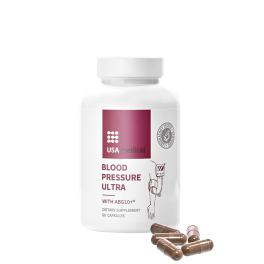Garlic, a very popular ingredient for various dishes, is also used in traditional Hungarian cuisine and contains very strong medicinal properties. Even Egyiptian papyri and the Bible mention the effects of garlic. It has been used by many ethnic groups over the years to treat heart disease, tumours and headaches. In 1858, Pasteur described the antibacterial effects of garlic. Since then, many different effects of garlic have been discovered.
Garlic is best known for its antihypertensive effects, partly due to its strong antioxidant and anti-inflammatory properties. In most cases, blood pressure is increased by an inflammatory process that causes blood vessels to lose their elasticity (atherosclerosis), which garlic's antioxidant and anti-inflammatory properties are designed to reduce, allowing blood vessels to regain their elasticity and blood pressure to fall. In addition, the active ingredients in garlic can directly stimulate the production of nitric oxide (NO), which relaxes blood vessels. The relaxed blood vessels dilate, which also reduces blood pressure.
In addition to its blood pressure lowering effects, garlic is also very powerful on the nervous system. How strong is its effect? Just think about what happens when you peel and slice a garlic clove, and you start to tear up. This is because the garlic triggers the action of an enzyme that releases allicin. And allicin has an effect on nerve cells. Acetylcholine is a substance that establishes connections between nerve cells, mostly found around the muscles of the heart muscle and internal organs, but acetylcholine is also needed for the skeletal muscles to function. Acetylcholine is a neurotransmitter of the parasympathetic nervous system, which is what causes us to relax and cry. The parasympathetic nervous system also has blood pressure lowering effects. The allicin in garlic inhibits the enzyme that breaks down acetylcholine, so more acetylcholine is available to the body. This allows the heart muscle and internal organs to function more efficiently and can also lower blood pressure.
Because of its effect on acetylcholine, it may also benefit people with the autoimmune disease myasthenia gravis. In myasthenia gravis, the amount of acetylcholine is reduced, and garlic acts in the same way as the acetylcholine-degrading enzyme inhibitor used to treat it. For similar reasons, garlic may also be beneficial in Alzeimer's disease, where acetylcholine levels are also reduced. However, it is essential to consult a doctor before use.
It can also improve cataracts, as cataracts increase the pressure on the lens of the eye, and through its action on acetylcholine, allicin in garlic can reduce the pressure on the lens by contracting the muscles around the eye, allowing fluid to flow through and thus reducing the pressure.
It also aids bowel function, helping digestion and bowel movements.
In addition to allicin, it contains a number of other active ingredients with antioxidant and anti-inflammatory properties, which have a body-wide effect and may reduce the risk of many diseases. It can protect against infections, providing relief from colds and other respiratory infections.
Safe doses of garlic extract have not been established by studies, as it has a strong effect on the nervous system, so avoid continuous use or exceeding the amounts prescribed by the manufacturer. In the absence of studies, it is not recommended for pregnant and breastfeeding women or children. Consult a doctor before use.
Garlic extract is not recommended for use with certain medicines for HIV infection, contraceptives, anticoagulants, cyclosporine and coumadin.
Also:
- Lovastatin (Mevacor)
- Ketoconazole (Nizoral)
- Itraconazole (Sporanox)
- Fexofenadine (Allegra)
- Triazolam (Halcion)
- Enflurane (Ethrane)
- Halothane (Fluothane)
- Isofluranes (foranes)
- Methoxyflurane (Penthrane)















